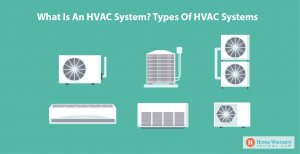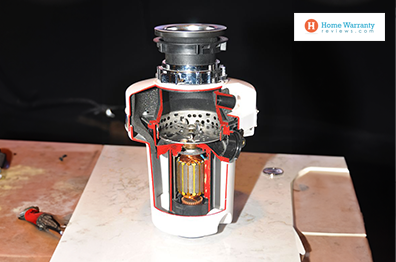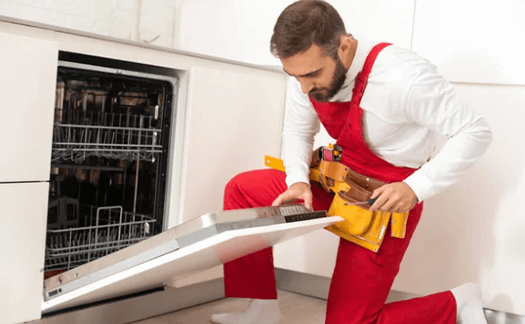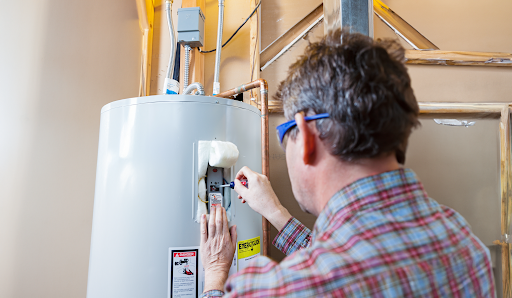What Is An HVAC System? Types Of HVAC Systems

Your HVAC system is the very core system of an American home. The freezing winters of Northern states and the sweltering heat of the South can all be dealt with thanks to this indispensable invention. If your HVAC breaks down, it would be useful for you to know what is the HVAC system exactly. There are a few different types of HVAC systems.
What does HVAC stand for?
HVAC stands for Heating, Ventilation, and Air Conditioning. They are usually integrated systems that carry out all these functions. The entire system may be controlled from a single interface. This reduces the number of machines to be installed.
The heating unit in your HVAC system may be a boiler, a furnace or a heat pump. It is connected to a heat transfer system which may be hot air ducts or water pipes.
The Ventilation system is oft-ignored but is a key component of HVAC. It exchanges the air within your space with the outside air. It enables the removal of pollutants, dust, smoke, odors and replenishes oxygen.
The Air conditioning unit cools down your space. It transfers heat from indoors to outdoors.
What is in my HVAC System?
A complete HVAC system is more energy-efficient than getting separate units, and it also costs lower to maintain in the long run. An HVAC system is a complicated system with several parts. We have listed out the most common parts you should remember to check if your home warranty covers.
- Air Return
- Filter
- Exhaust outlet
- Ducts/pipes
- Outdoor fan unit
- Blower
- Compressor
- Electrical Circuit
- Coils with Refrigerant
Types of HVAC Systems
Most American homes have one of these four types of HVAC systems:
Standard Split HVAC System
This is the most common type. Here, the main heating and cooling system is split into an indoor unit and the outdoor unit.
The Indoors unit is typically the cooling unit. It has a refrigerant, and coils to cool the air, and a fan to blow out hot air. The compressor converts the liquid refrigerant to gas and sends it to the coils.
The heating unit is often placed in the basement of a dwelling. It may be a furnace, a heat pump or a boiler. Gas furnaces are a good choice in colder regions.
The heat pump system eliminates the use of separate AC as it does both heating and cooling. It uses an air handler with a blower motor for the heating function.
In very cold regions many people use split HVAC systems with two heat sources. These are called hybrid heat systems or dual fuel systems. They contain a gas furnace as well as a heat pump.
Ductless or MiniSplit HVAC System
In these systems, there is an air conditioner for cooling or a heat pump for both heating and cooling. You won’t have a furnace. As the name suggests, there are no ducts here.
These systems are more expensive to purchase and maintain but ideal for homes which want independent HVAC units in each room. They are easy to install and are very energy efficient.
Geothermal HVAC System
These HVAC systems are becoming steadily more popular due to the increasing importance accorded to sustainability. Geothermal systems are the most energy-efficient. They do however have a high upfront cost.
These systems have an underground loop of pipes to get heat from the earth which is then sent to a heat pump. While to cool down your home, the heat is drawn by the pump and sent into the earth. The pipes have water circulating along with the refrigerant.
Packaged HVAC System
These are the converse of the split system, ideal for homes where it is difficult to install split systems due to lack of a basement. These systems have combined heating and cooling units and are a lot more compact. Mostly installed outdoors, they can be installed in the attic or top floor if that is not an option.
Heat is generated electrically. These systems are quite efficient and easy to maintain. They are ideal for warmer climates, not needing very powerful heating.
HVAC systems can be very expensive to install and maintain. Simple preventive maintenance and regular cleaning can help minimize unnecessary hassle. But do refrain from trying unverified DIY hacks. Consider investing in an annual maintenance plan to keep your HVAC system covered under a home warranty to protect your budget.
RECENT ARTICLES






